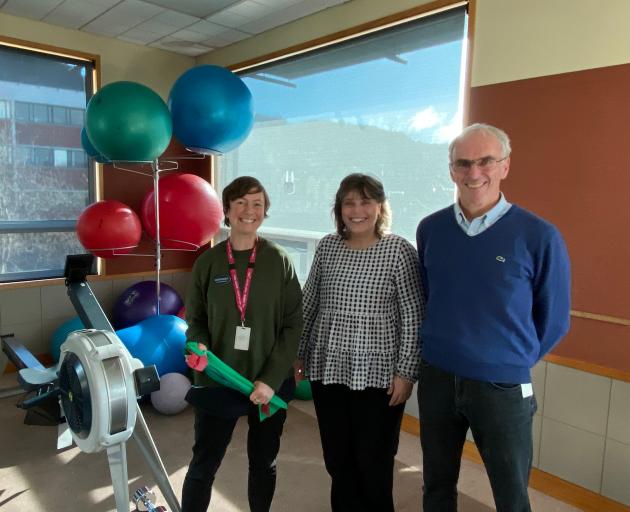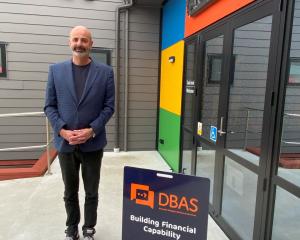
That is the message from Dunedin physiotherapy clinicians and physiotherapy experts Dr Miranda Buhler, Dr Cathy Chapple and Martin Kidd, ahead of World Physiotherapy Day tomorrow.
The focus of World Physiotherapy Day this year is osteoarthritis — the most common form of arthritis, affecting millions of people worldwide.
It occurs when the protective cartilage that cushions the ends of bones wears down over time, and is common in hands, knees, hips, shoulders and the spine.
University of Otago school of physiotherapy senior lecturer Dr Chapple said people who were diagnosed with osteoarthritis generally had one of three outcomes — one-third grew worse, one-third stayed the same, and one-third improved.
"There is a lot you can do as a patient to help your symptoms to improve."
Mr Kidd is the clinical lead of the Southern Community Orthopaedic Triage Service (Scots), which works to provide early intervention for patients with osteoarthritis — in particular those experiencing persistent knee and shoulder pain.
Instead of waiting for an orthopaedic assessment at Dunedin Hospital, Scots patients are assessed quickly and then offered an exercise and education programme to help them self-manage the condition. This can delay or prevent the need for surgery.
"The Scots programme operates on the premise that the earlier we can assess and start working with a patient, the more likely it is that they will have a positive outcome," Mr Kidd said.
There were a range of options for people living with osteoarthritis, include assessment and triage services, which were physio-led and could be helpful in helping maintain mobility and gain strength, he said.
"Physiotherapists understand that osteoarthritis exists in conjunction with other issues, and can help build a holistic picture and identify what care is needed."
Dr Miranda Buhler, a specialist physiotherapy clinician at Te Whatu Ora, said there was a lot that people could do to help manage the pain and stiffness of arthritis in positive ways, such as through exercise and weight loss.
"Being aware of physical stresses, such as computer use, is also important," she said.
An important factor in improving outcomes was for people to seek assistance for the condition as early as possible, so that helpful changes could be made.
"Getting on to it early means physiotherapy can help to protect those joints — so that the end result doesn’t have to be joint replacement."
The three experts believe that having physiotherapists as part of the "first line" for assessments would improve outcomes.
"It is frustrating when people have been bouncing back and forth between primary carers, when physios have good tools to help people," Dr Buhler said.
"If you are experiencing discomfort, seek advice early and learn how to manage your day to day life and stay active — it will be helpful in the long run."
Mr Kidd said, while preventing joint replacement surgery was not possible for everyone, good advice about exercise and strategies for recovery could lead to better outcomes and less time in hospital.
"Surgery may be the best option, and in those circumstances, rehabilitation is vital."













